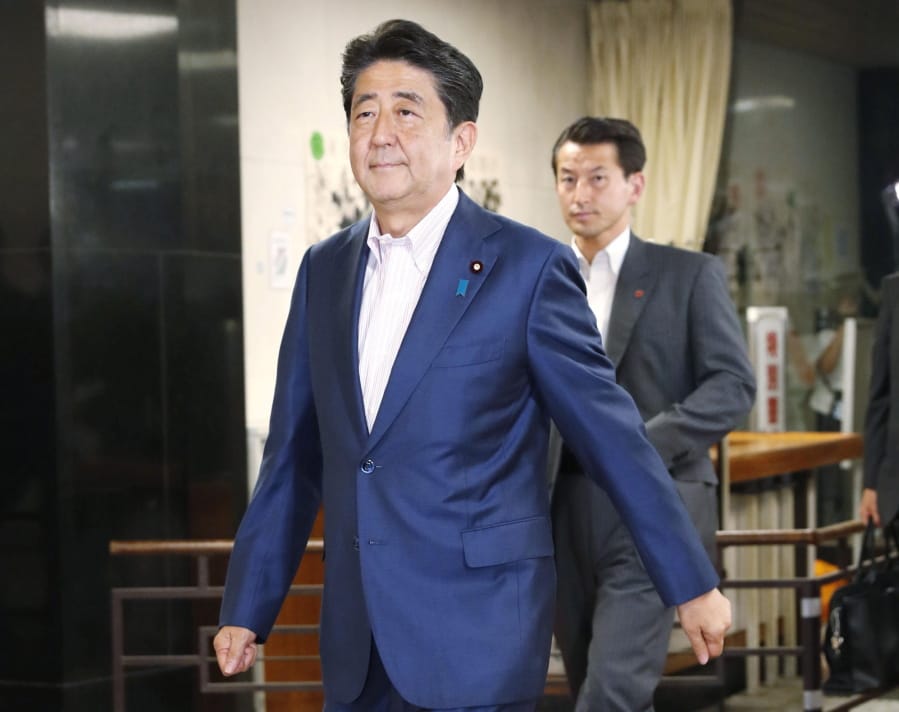TOKYO — Prime Minister Shinzo Abe’s ruling coalition appeared certain to hold onto a majority in Japan’s upper house of parliament following Sunday’s election, with exit polls indicating he could close in on a super-majority needed to propose constitutional revisions.
NHK public television said that Abe’s Liberal Democratic Party and its partner Komei were sure to win from 67 to 77 seats in the upper house, and that the two-thirds majority needed for constitutional revision could be within reach if the bloc is joined by supporters from another party.
Up for grabs were 124 seats in the less powerful of Japan’s two parliamentary chambers. There are 245 seats in the upper house — which does not choose the prime minister — about half of which are elected every three years. If the exit polls prove accurate, the results would match or even exceed pre-election polls that indicated Abe’s ruling bloc was to keep ground in the upper house, with most voters considering it a safer choice over an opposition with an uncertain track record.
Opposition parties have focused on concerns over household finances, such as the impact from an upcoming 10 percent sales tax increase and strains on the public pension system amid Japan’s aging population.




